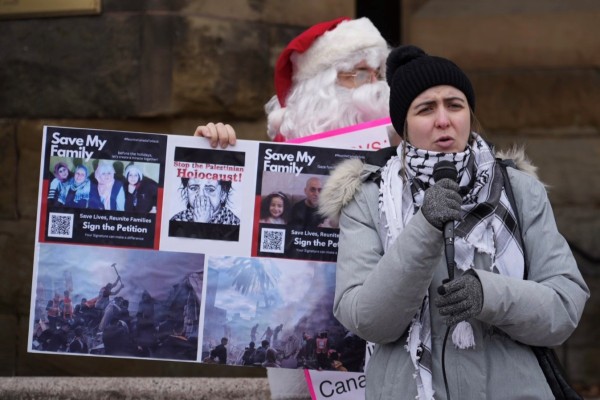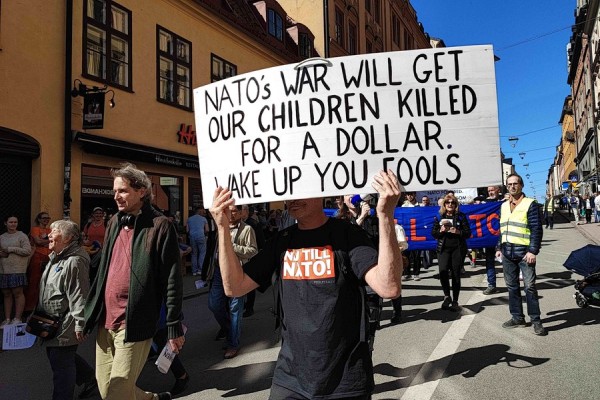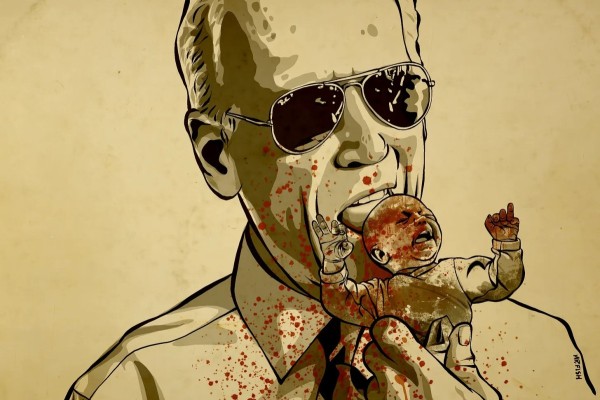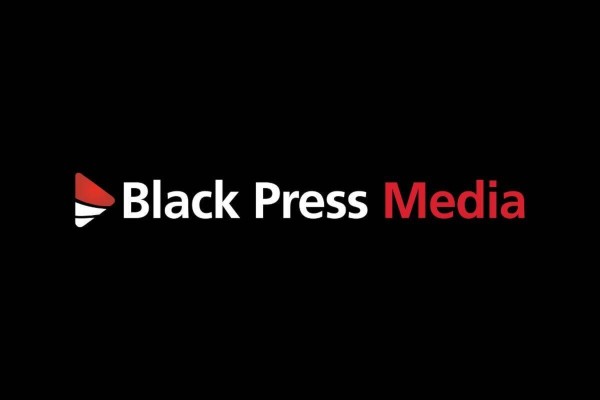-

Gaza and Canada’s refugee double standard
The different treatment of Ukrainian and Palestinian refugees exposes a clear double standard. The Trudeau government’s response to Ukraine was swift and comprehensive. There was no cap on how many could apply and they did not need to have Canadian relatives. Ottawa eventually received 1,189,320 applications from Ukrainians and approved 936,293, with 210,178 arriving in Canada.
-

The four horsemen of Gaza’s apocalypse
Joe Biden’s inner circle of strategists for the Middle East—Antony Blinken, Jake Sullivan and Brett McGurk—have little understanding of the Muslim world and a deep animus towards Islamic resistance movements. They see Europe, the United States and Israel as involved in a clash of civilizations between the enlightened West and a barbaric Middle East.
-

Liberal studies students subjected to decidedly illiberal guest speaker
What kind of Institute for Liberal Studies funds a Calgary-based conservative commentator to spread right-wing conspiracy theories to its students about government censorship of the news? Apparently the one at Vancouver Island University does. The irony is that Jen Gerson’s recent talk was actually the least controversial aspect of her appearance.
-

The global crisis of representation intensifies
The fates of electoralism and militarism are entwined. In conditions of renewed cold war, the choices on offer and the potential range of policies and programmes are constrained by national security considerations and the shifting alignments of bloc politics. The voice of constituencies who believe that peace and development should be the priority remain unrepresented.
-

Lenin: a centenary reflection
The cult of personality that the Soviet authorities built around Lenin after his death was fully justified. The revolution of November 1917 really was Lenin’s revolution, and the communist system really was Lenin’s creation. Great impersonal forces matter. But so too does individual agency. The life of Vladimir Lenin proves the point. For good or evil, he changed the path of history.
-

The case for genocide
Genocide is not a political problem. It is a moral one. We cannot support those who commit or are accomplices to genocide. Genocide is the crime of all crimes. We must stand unequivocally with Palestinians and the jurists from South Africa. We must demand justice. We must hold Biden accountable for the genocide in Gaza.
-

Black Press sale would increase American ownership of Canada’s news media
Yet another Canadian community newspaper chain is going to court under our bankruptcy laws, but again it has nothing to do with it going out of business. As Marc Edge details, this time, it is more a legal power play to force its sale to largely American interests over the objections of its minority owner.
-

Canada has gone from complicity through silence to active participation in genocide
The international community has two paths towards normalizing shipping through the Red Sea: intervene to stop an ongoing genocide, or intervene by punishing a country already devastated by decades of Western interventionism and war in the hopes that it will force their military to disengage. That choice seems like an obvious one.
-

The National Post should be the last to lecture anyone about media bias
There is something ironic about the National Post lecturing anyone about media bias, as it did recently with a front-page story titled “A more damaging media bias.” As Marc Edge shows, the opposite is true: the extreme level of ownership concentration in Canada has since resulted in a correspondingly extreme conservative media bias.
-

A poem by Leila Marshy: ‘Kinship’
A new poem by Leila Marshy, a Montréaler of Palestinian-Newfoundland heritage. Her stories and poetry have been published in literary journals and anthologies in Canada and the United States. Marshy works as a freelance writer and editor. The Philistine (Linda Leith Publishing, 2018) is her first novel.



